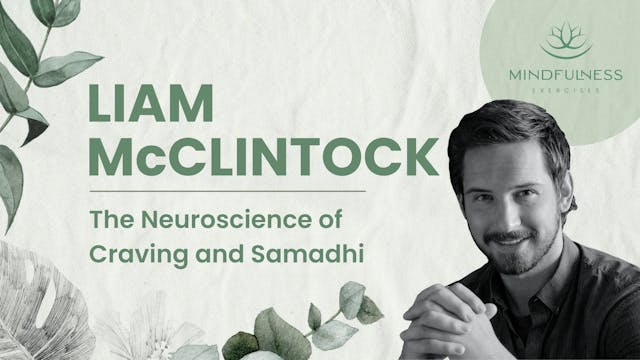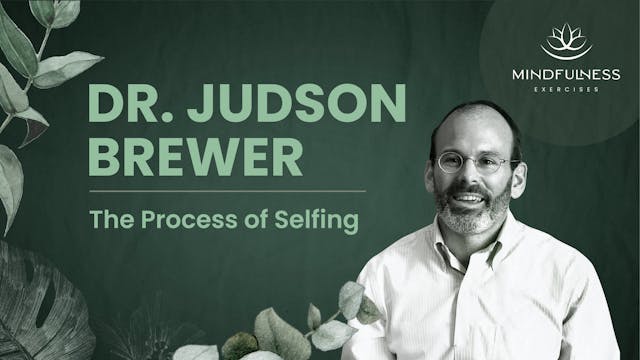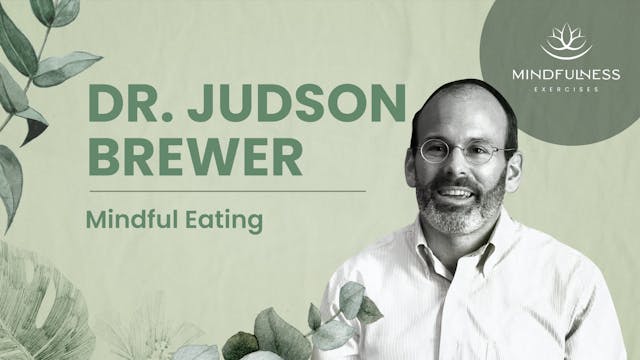Managing the Adverse Effects of Mindfulness Meditation - Willoughby Britton
Explore the Science of Mindfulness & Meditation
•
2h 9m
Dr. Britton earned a B.A. in Neuroscience from Colgate University in 1996 and a Ph.D. in Clinical Psychology from the University of Arizona in 2007. She is the recipient of two National Research Service Awards (NRSA) and a Career Development Award (CDA) from the National Institutes of Health (NIH). She is currently the Director of Brown’s Clinical and Affective Neuroscience Laboratory which investigates the psychophysiological (EEG, EMG, EKG) and neurocognitive effects of cognitive training and mindfulness-based interventions for mood and anxiety disorders. Current NIH-funded studies include a 3-armed RCT entitled “Dismantling Mindfulness” that compares the effects of three different types of meditation training programs on pre-frontal cortex functioning in depression; and a collaborative infrastructure grant (UH2) with Harvard and UMASS entitled “Mindfulness Influences on Self-Regulation: Mental and Physical Health Implications”. An interdisciplinary qualitative study entitled “The Varieties of Contemplative Experience,” is investigating under-reported and potentially challenging, distressing or impairing meditation-related effects. She has been trained as an instructor in Mindfulness-Based Stress Reduction (MBSR) and Mindfulness-based Cognitive Therapy (MBCT), and has taught mindfulness to both clinical and non-clinical populations, and in federally-funded clinical trials.
Learn more about Cheetah House: https://www.cheetahhouse.org/about-us
Learn more about Willoughby Britton: https://www.brown.edu/public-health/mindfulness/people/willoughby-britton-phd
1:45 – Sean introduces Dr. Willoughby Britton
5:21 – Willoughby’s origin story – why she studies meditation-related challenges
7:15 – What it means to be trauma-informed
9:09 – A meditation on the feeling of being misunderstood, bothered and afraid of rejection
11:04 – Overview of the presentation and what we’ll be discussing
11:37 – The frequency of meditation-related side effects and adverse effects
18:24 – Common adverse effects and what teachers should be most concerned about
24:00 – Re-experiencing trauma is not actually predictive of long-term impairment
24:50 – The neurobiological mechanisms of hyperarousal
34:41 – The neurobiological mechanisms of dissociation
38:30 – Practice-specific trajectories – which types of meditation improve anxiety vs depression
41:20 – Assessing your students for risk of adverse meditation effects – exclusion criteria
43:20 – Demographics and other factors that indicate risk for adverse effects from meditation
47:30 – Informed consent and advertising (versus screening or excluding students)
50:48 – Ways to monitor and solicit feedback to see if your students are having problems
55:35 – Trauma-informed mindfulness vs diversity-informed mindfulness
1:01:30 – Titration: A means of responding when outside your window of tolerance
1:05:00 – Actual meditators describe unhelpful or harmful messages
1:12:45 – Trauma-informed practice modifications
1:24:14 – The problem with misunderstanding no-self teachings and options for referring to self
1:26:24 – How to empower the individual by offering (and embodying) choice and control
1:34:00 – Skillful ways to respond to disclosures of harm
1:40:42 – Additional resources to help mindfulness teachers minimize harm
1:43:00 – Upcoming talk: How do you know if an experience is part of the path, or a problem that needs intervention?
1:46:45 – Clarification regarding exclusion criteria
1:52:00 – Resources for intake forms and disclosure statements
1:53:00 – Clarification regarding pre-existing conditions that may lead to adverse effects
1:58:42 – The role that psychedelics play in forming destabilizing meditation expectations
1:59:30 – How to skillfully introduce potential negative effects to new clients
2:02:20 – Addressing student deviations from the guided instructions
2:05: Clarifying the difference between brightsighting and drawing attention to shared humanity
2:07:30 – A closing dedication to those who are struggling and all those who want to help
Up Next in Explore the Science of Mindfulness & Meditation
-
The Neuroscience of Craving and Samad...
Liam McClintock is the Founder & CEO of FitMind, a mental fitness technology company. The FitMind approach is taught at Fortune 500 companies, addiction centers, schools, government organizations, and via mobile app.
Liam also hosts The FitMind Podcast, engaging various experts on the mind rangi...
-
The Process of Selfing - Dr. Judson B...
Dr. Jud Brewer works in the field of habit change and the “science of self-mastery”, combining over 20 years of experience with mindfulness training and a career in scientific research. He is passionate about understanding how our brains work, and how to use that knowledge to help people make dee...
-
Mindful Eating - Dr. Judson Brewer
Dr. Jud Brewer works in the field of habit change and the “science of self-mastery”, combining over 20 years of experience with mindfulness training and a career in scientific research. He is passionate about understanding how our brains work, and how to use that knowledge to help people make dee...



